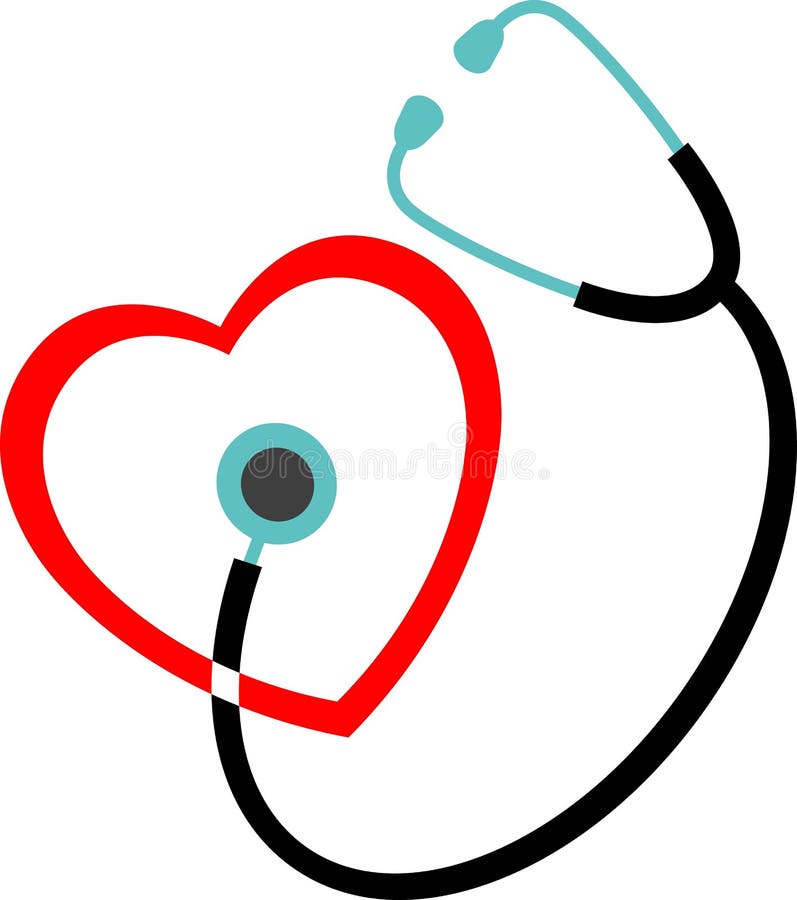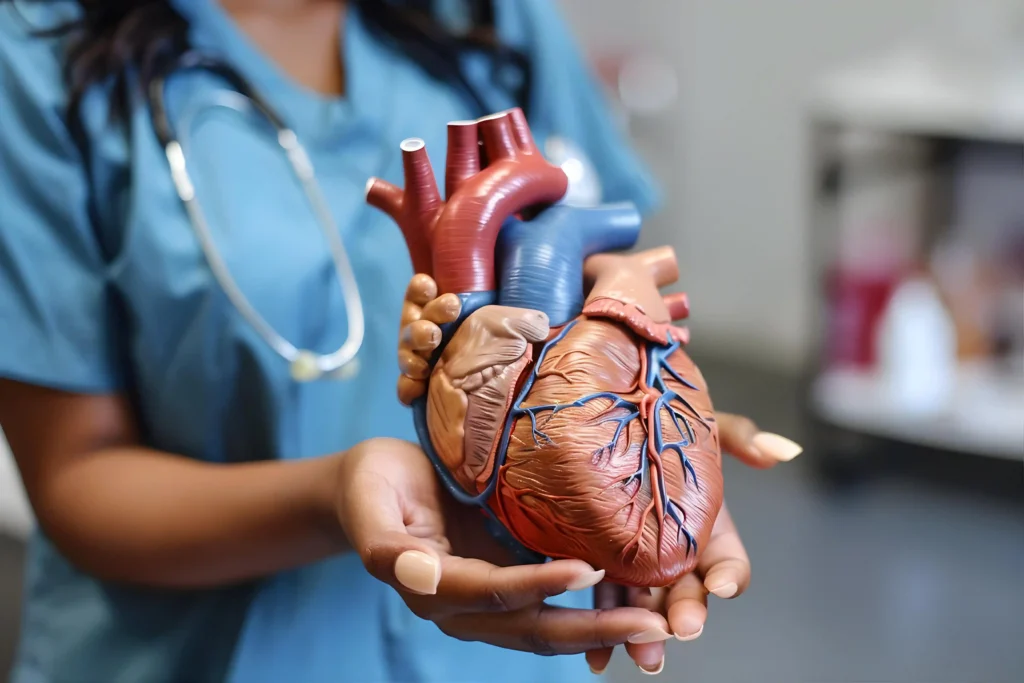Comprehending the Relevance of Cardiology in Modern Medical Care Providers
Cardiology plays a critical role in modern healthcare, particularly as heart problem proceeds to be the leading root cause of death worldwide. Breakthroughs in diagnostics and therapy have actually transformed patient care, enabling earlier treatments and boosted end results. In addition, the change towards preventative cardiology encourages people to manage their health proactively. As modern technology remains to progress, the combination of innovative solutions may even more redefine cardiology's impact on public wellness, triggering a better examination of arising patterns and their implications.
The Prevalence of Cardiovascular Disease and Its Influence On Public Health
Although heart disease continues to be the leading cause of fatality globally, its influence prolongs far past individual people to impact public wellness systems and economic climates. The high frequency of cardiovascular disease places a significant stress on medical care resources, demanding increased financing for treatment, avoidance, and rehabilitation programs. Public health efforts must attend to danger aspects such as obesity, cigarette smoking, and less active way of lives, which add greatly to the increasing occurrence of heart conditions.Moreover, the financial burden related to heart problem is immense, including not just straight clinical costs but likewise indirect costs connected to lost efficiency and premature mortality. Neighborhoods encounter obstacles in taking care of these expenses, often leading to disparities in health care gain access to and results. As the populace ages and lifestyle-related dangers continue to rise, the urgency for reliable cardiology treatments becomes paramount. Addressing heart condition is not just an issue of private health and wellness but also an important public wellness top priority.
Developments in Cardiac Diagnostics and Imaging Techniques
Recent advancements in heart diagnostics and imaging methods have transformed the field of cardiology, enhancing the capacity to keep track of and spot heart problem. Techniques such as heart MRI, CT angiography, and echocardiography have actually become significantly innovative, offering detailed photos of heart structures and features. These techniques allow for the very early identification of problems like coronary artery condition, cardiac arrest, and valvular disorders.Moreover, innovations in non-invasive diagnostics, such as wearable modern technology and remote tracking tools, have empowered individuals and doctor. These devices facilitate real-time monitoring of heart rhythms and other necessary signs, bring about timely treatments. Additionally, expert system is being incorporated right into imaging analysis, boosting accuracy and efficiency in medical diagnosis.
Innovations in Treatment Alternatives for Heart Conditions
Recent innovations in cardiology have brought about substantial innovations in treatment alternatives for heart problems. These consist of sophisticated medical techniques that improve step-by-step end results and emerging medicines that supply new opportunities for treatment. As the area develops, these advancements play an essential role in enhancing person care and outcomes.
Advanced Surgical Techniques
Advancements in medical strategies have actually transformed the landscape of cardiology, providing new expect people with heart conditions. Minimally invasive procedures, such as catheter-based interventions, have significantly minimized recuperation times and hospital stays. Methods like robotic-assisted surgical treatment improve accuracy, enabling specialists to navigate complicated anatomical structures with greater accuracy. Additionally, developments in imaging innovation assist in real-time visualization throughout treatments, enhancing results. Transcatheter aortic valve replacement (TAVR) exemplifies a breakthrough in dealing with aortic constriction, making it possible for shutoff substitute without open-heart surgery. In addition, hybrid strategies that incorporate catheter-based and medical approaches give tailored services for various heart problems. These sophisticated medical techniques not just improve client safety yet likewise expand therapy alternatives, underscoring the critical duty of development in modern cardiology techniques.
Emerging Medications and Treatments
As the landscape of cardiology proceeds to progress, emerging drugs and therapies play a pivotal duty in enhancing therapy choices for heart disease. Advancements such as novel anticoagulants and progressed lipid-lowering agents have actually transformed the monitoring of heart diseases, substantially decreasing client morbidity and mortality. Furthermore, the development of genetics treatments and regenerative medicine supplies promising opportunities for treating problems previously considered irreparable. Medical tests are constantly exposing the efficacy of these treatments, pressing the boundaries of standard therapies. Furthermore, the combination of electronic health innovations promotes individualized medicine, permitting for tailored treatment plans based upon genetic and way of life variables. Jointly, these innovations underscore the dynamic nature of cardiology, enhancing individual end results and redefining criteria of treatment in modern-day medical care.
The Role of Preventive Cardiology in Client Care
Precautionary cardiology plays a necessary duty in person treatment by concentrating on the recognition of threat aspects that add to cardiovascular disease. With way of life adjustment techniques and early detection techniques, health care suppliers can successfully minimize the incidence of cardiovascular events - Dr Garcia. This proactive approach not just boosts individual results but also advertises long-lasting health
Risk Factor Recognition
While cardio illness remain a leading reason of morbidity and mortality worldwide, effective risk variable recognition acts as a cornerstone of preventive cardiology. Recognizing danger factors such as high blood pressure, diabetes, hyperlipidemia, and family members history is important for early treatment. Health care specialists use various screening methods to review these elements, allowing for tailored safety nets. In addition, comprehending a person's way of life selections, such as smoking and physical lack of exercise, further notifies risk evaluations. This comprehensive examination enables clinicians to create personalized care strategies targeted at mitigating risks. By prioritizing danger variable identification, health care systems can boost patient outcomes and lower the overall concern of heart diseases, ultimately contributing to enhanced public health and wellness approaches and resource allowance.
Way Of Living Alteration Strategies
A wide range of research studies highlights the essential duty of lifestyle modification methods in minimizing cardio condition threat. These approaches encompass nutritional changes, boosted exercise, smoking cessation, and weight management. By adopting a heart-healthy diet abundant in fruits, veggies, entire grains, and lean healthy proteins, people can decrease cholesterol levels and blood stress. Routine exercise enhances the heart and enhances general cardiovascular health. Additionally, quitting smoking greatly reduces the risk of heart condition and boosts recovery prices for those with status quo. Weight administration even more adds to cardio health and wellness by alleviating other risk factors such as diabetes mellitus and high blood pressure. Executing these lifestyle transforms not just promotes private wellness but additionally works as a foundation of preventive cardiology in person care.
Early Detection Techniques
Way of living adjustments significantly add to minimizing cardiovascular condition dangers, however they are most effective when coupled with early discovery methods. Preventive cardiology highlights the significance of recognizing prospective heart issues prior to they escalate right into serious problems. Strategies such as blood stress surveillance, cholesterol testing, and progressed imaging modern technologies like echocardiograms play crucial duties in assessing cardio health. Biomarkers and hereditary screening likewise boost the precision of very early discovery, permitting customized preventive techniques. Regular cardiac threat analyses equip medical care service providers to interfere proactively, potentially avoiding cardiovascular disease and strokes (Dr Garcia). By incorporating these early discovery approaches into routine care, people can profit from timely way of life treatments and targeted therapies, ultimately boosting and improving results lifestyle
Integrating Modern Technology Into Cardiology Practices
As advancements in technology continue to reshape different areas, the combination of cutting-edge tools and systems into cardiology practices has become vital for improving individual treatment and end results. Telemedicine systems allow cardiologists to monitor patients remotely, improving accessibility to care while reducing the burden on healthcare centers. Wearable tools, such as smartwatches, make it possible for continual heart price surveillance, informing both doctors and individuals to possible problems in real-time. Furthermore, expert system (AI) is being utilized to assess substantial quantities of heart information, helping in early diagnosis and tailored therapy plans. Advanced imaging techniques, consisting of 3D echocardiography, boost visualization of heart structures, leading to more specific treatments. Digital wellness records (EHRs) improve patient details administration, guaranteeing that cardiologists have immediate accessibility to crucial information. Together, these technological improvements are transforming cardiology, promoting positive management and boosted health and wellness outcomes for people with cardiovascular conditions.
The Relevance of Client Education And Learning and Engagement
Individual education and engagement play an essential role in the administration of cardio health. By furnishing patients with understanding regarding their problems, treatment alternatives, and way of life modifications, medical care companies encourage people to take an active role in their care. This aggressive approach can cause boosted adherence to suggested medications, dietary modifications, and workout routines, inevitably lowering the risk of complications.Engagement likewise promotes a solid patient-provider partnership, urging open communication and depend on. When individuals really feel educated and included, they are most likely to voice concerns and ask questions, which can lead to better clinical outcomes. Additionally, educational resources, such as workshops or digital platforms, can improve understanding and promote self-management techniques. In general, prioritizing patient education and involvement is important for enhancing cardiovascular health, boosting lifestyle, and lowering health care costs associated with cardio diseases.
Future Fads in Cardiology and Their Prospective Influence

Frequently Asked Inquiries
What Way Of Life Changes Can Reduce Heart Illness Risk?
The existing inquiry addresses lifestyle changes that can greatly lower heart illness risk. Cardiology Jupiter. Taking on a balanced diet regimen, involving in normal physical task, maintaining a healthy and balanced weight, managing stress and anxiety, and preventing cigarette can significantly boost cardiovascular wellness
How Can I Identify Early Indications of Heart Problems?
Acknowledging very early indications of heart troubles involves tracking signs and symptoms such as breast pain, lack of breath, fatigue, and irregular heart beat. Timely understanding browse around this site of these indications can prompt needed clinical assessment and treatment for better results.
What Are the Distinctions Between Cardiologists and Cardiac Surgeons?
The distinctions in between cardiologists and heart cosmetic surgeons exist in their roles; cardiologists mainly take care of and diagnose heart disease via non-invasive approaches, while cardiac cosmetic surgeons do operations to correct architectural heart issues. Each plays an important, unique function.

Exactly how Frequently Should I Obtain My Heart Health Checked?
What Function Does Genes Play in Cardiovascular Disease Risk?
Genes substantially affects heart illness danger, with domestic patterns suggesting acquired conditions. Details genes can incline individuals to hypertension, cholesterol issues, and other cardio problems, highlighting the value of genetic screening in reviewing heart health. Heart condition remains the leading cause of fatality globally, its influence extends far past individual patients to impact public wellness systems and economic climates. Public wellness initiatives should attend to threat variables such as obesity, smoking cigarettes, and inactive lifestyles, which contribute substantially to the rising incidence of heart conditions.Moreover, the economic problem linked with heart illness is immense, encompassing not only direct medical expenses yet additionally indirect expenses related to lost productivity and premature mortality. Precautionary cardiology plays a crucial role in patient care by focusing on the identification of risk factors that contribute to article source heart disease. Synthetic intelligence (AI) and device discovering are boosting diagnostics and person surveillance, making it possible for very early discovery of heart conditions. The distinctions between cardiologists and cardiac cosmetic surgeons lie in their roles; cardiologists primarily identify and handle heart conditions via non-invasive approaches, while heart specialists do surgical procedures to deal with architectural heart problems.
Comments on “Dr Garcia’s proven steps to resilient heart”